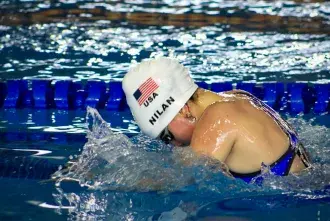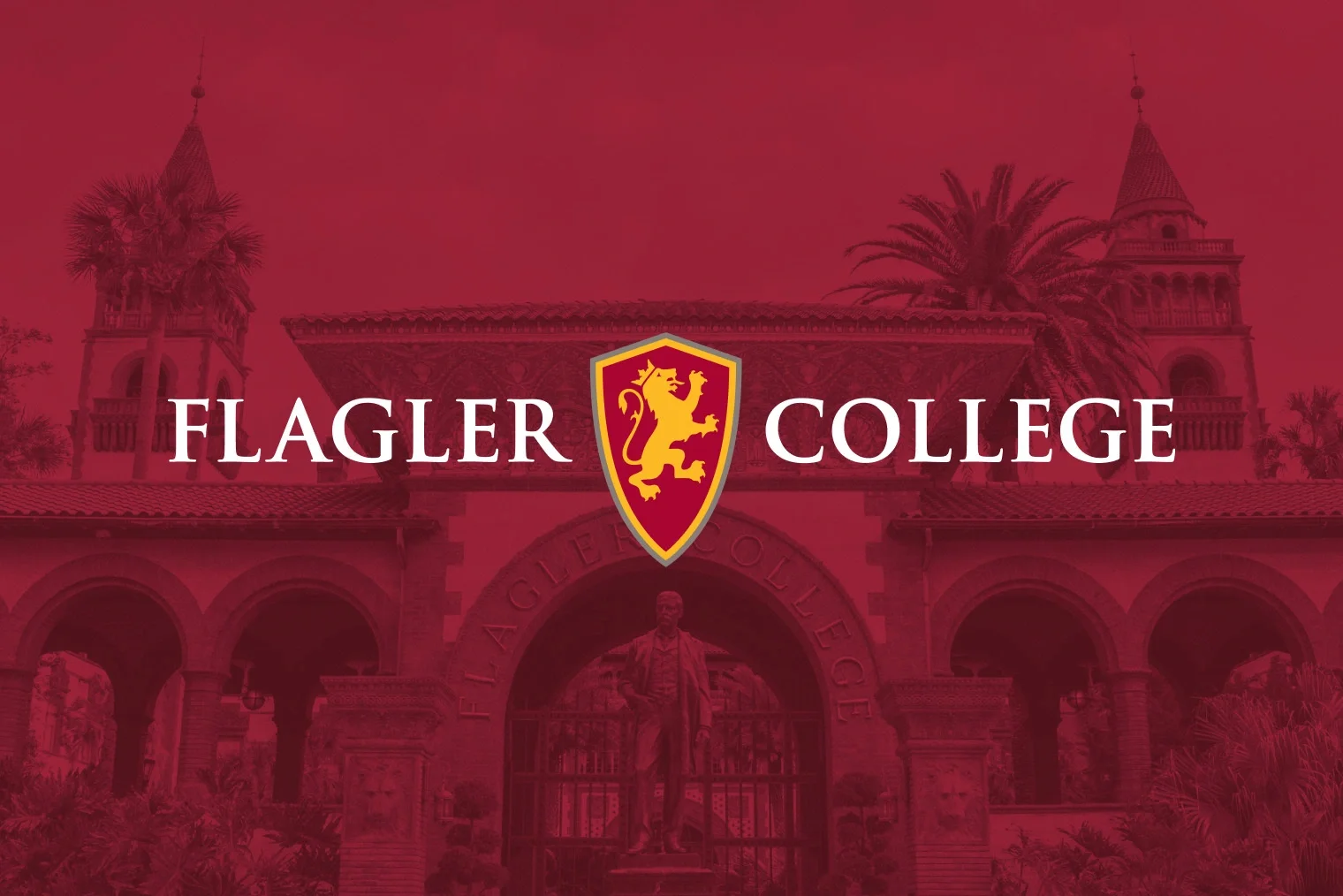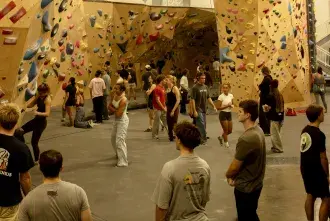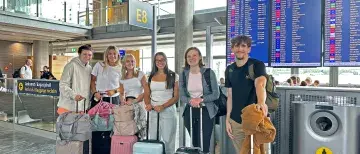
This June trip, "Entrepreneurship and Education in Sweden: Creating Innovative, Sustainable Solutions for the Future," had legs in major cities like Stockholm and Gothenburg. It was an opportunity for six students of various majors to have guided learning, cultural engagement, and independent exploration experiences in one of the world's most sustainable and innovative countries.
“This study abroad experience broadened the students' perspectives and provided them with valuable insights into sustainable practices and global cooperation, showcasing the region's diverse approaches to sustainability and rich cultural heritage," Education professor and trip faculty leader, Sandy Davis, said.
Take a peak into their unforgettable study abroad experience with pictures from their journey and insights from Davis:
Day 1
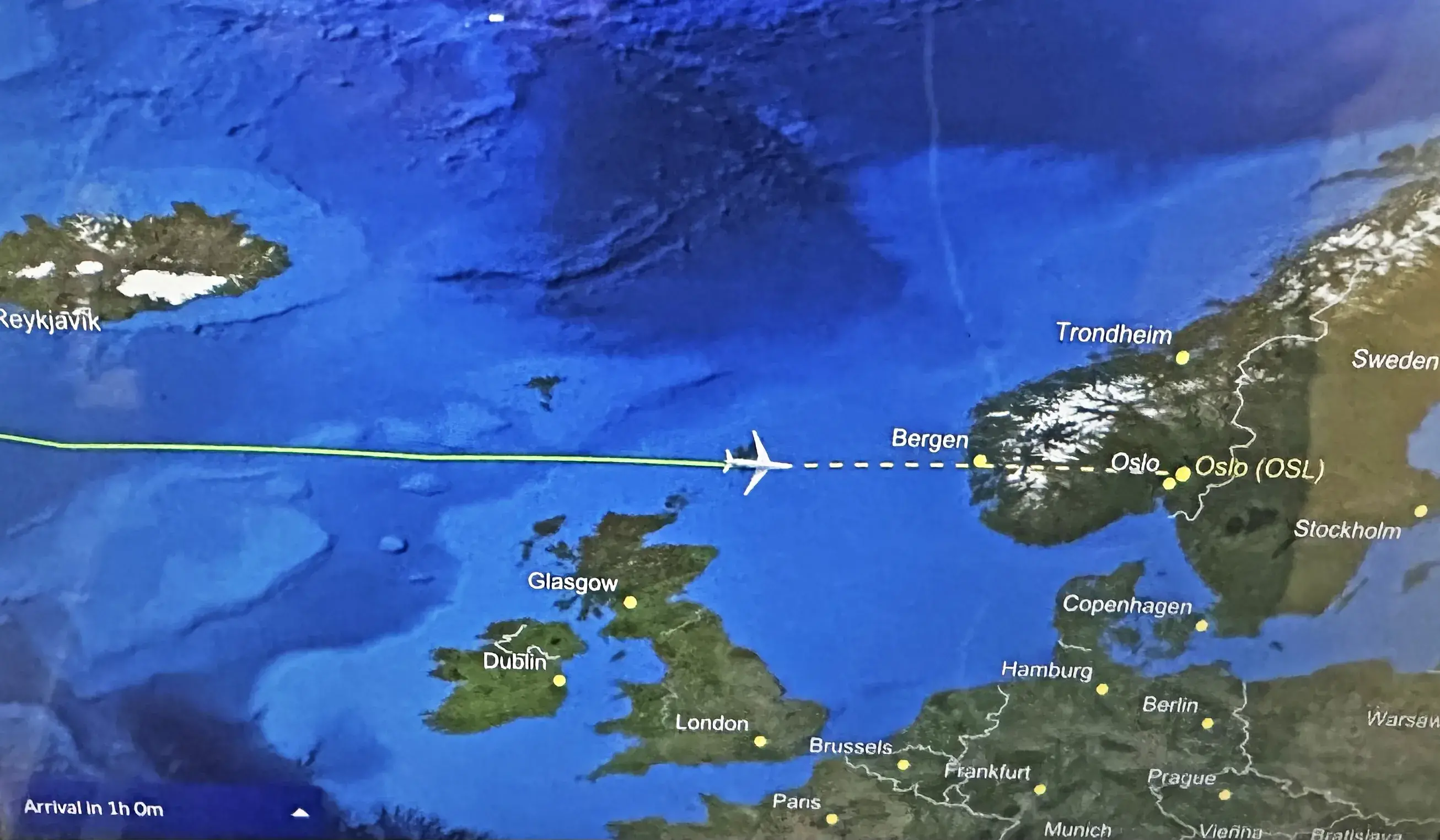
The adventure began! This small group jetted off across the Atlantic Ocean for an overnight flight into Sweden.
Day 2
The trip began in Stockholm with a visit to The Royal Palace, the official residence of “His Majesty the King” and the setting for most of the Swedish monarchy’s official receptions. The palace is open to the public year-round.
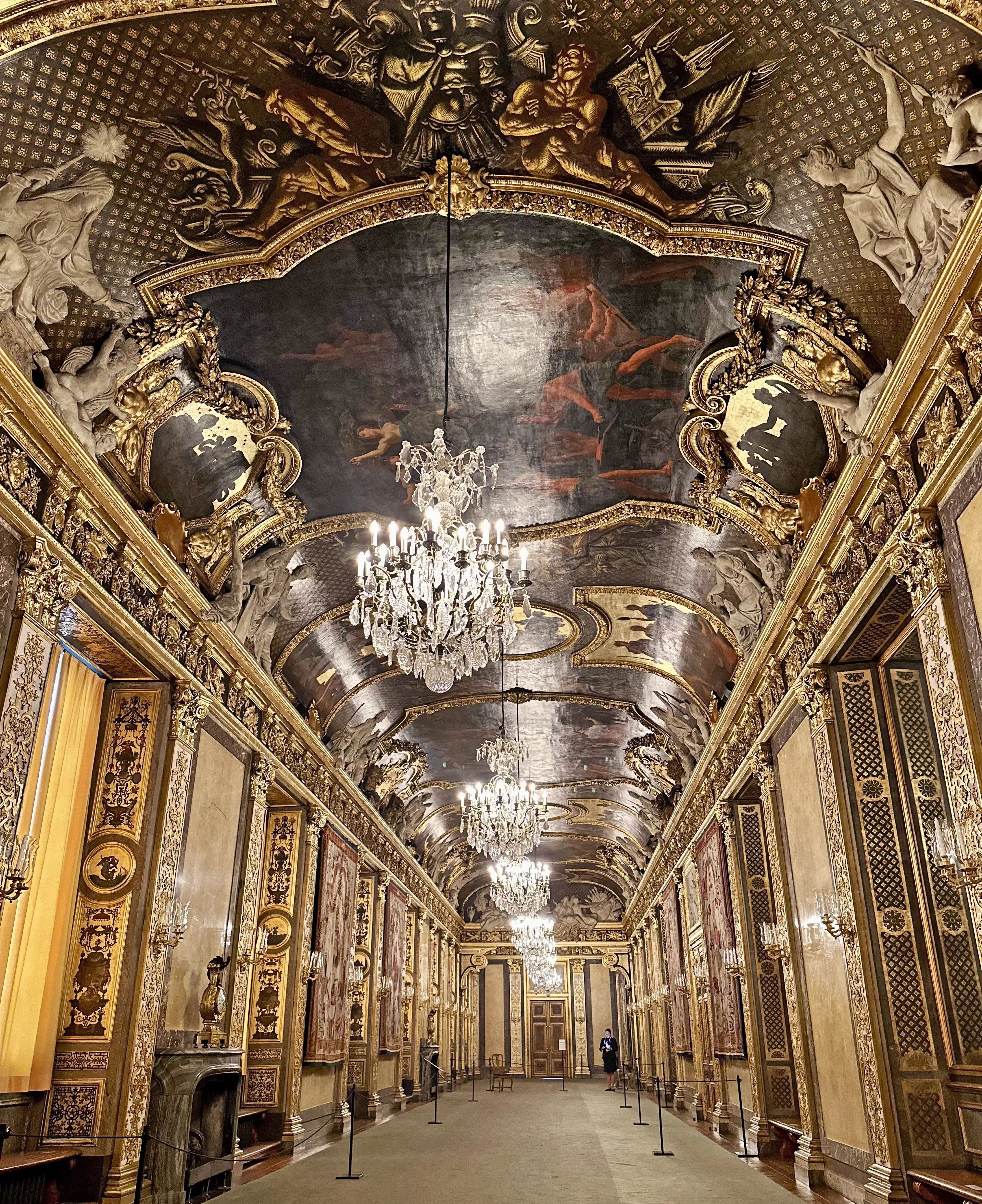
Later, the students enjoyed a welcome dinner at the medieval “Viking” tavern Sjätte Tunnan.
“Here, students were transported back in time in the dark cellar, where waiters in costumes served food inspired by authentic medieval recipes,” Davis said.
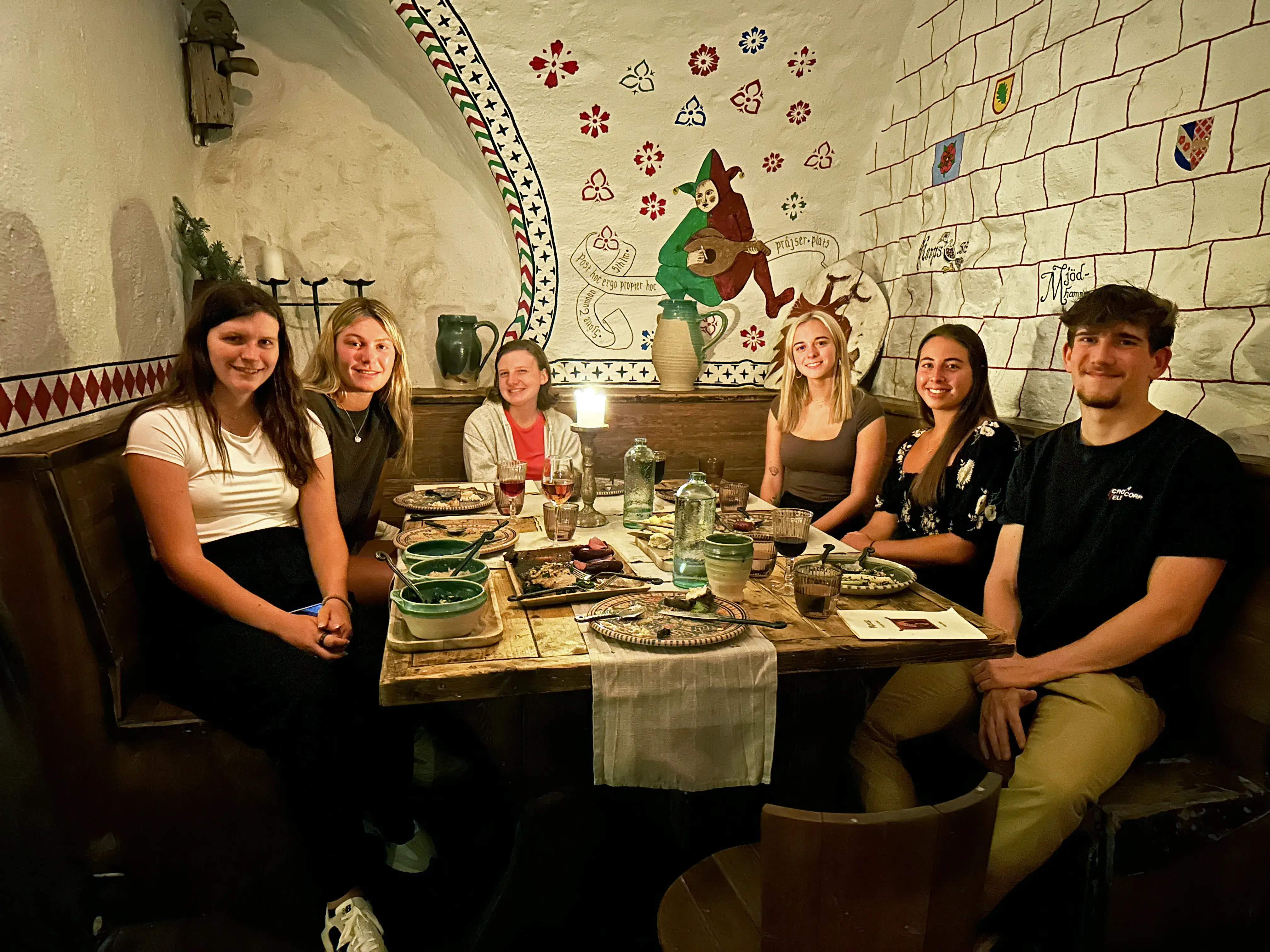
Day 3
The next day, they toured the Vasa Museum, housing a 17th century warship that sank on its maiden voyage.
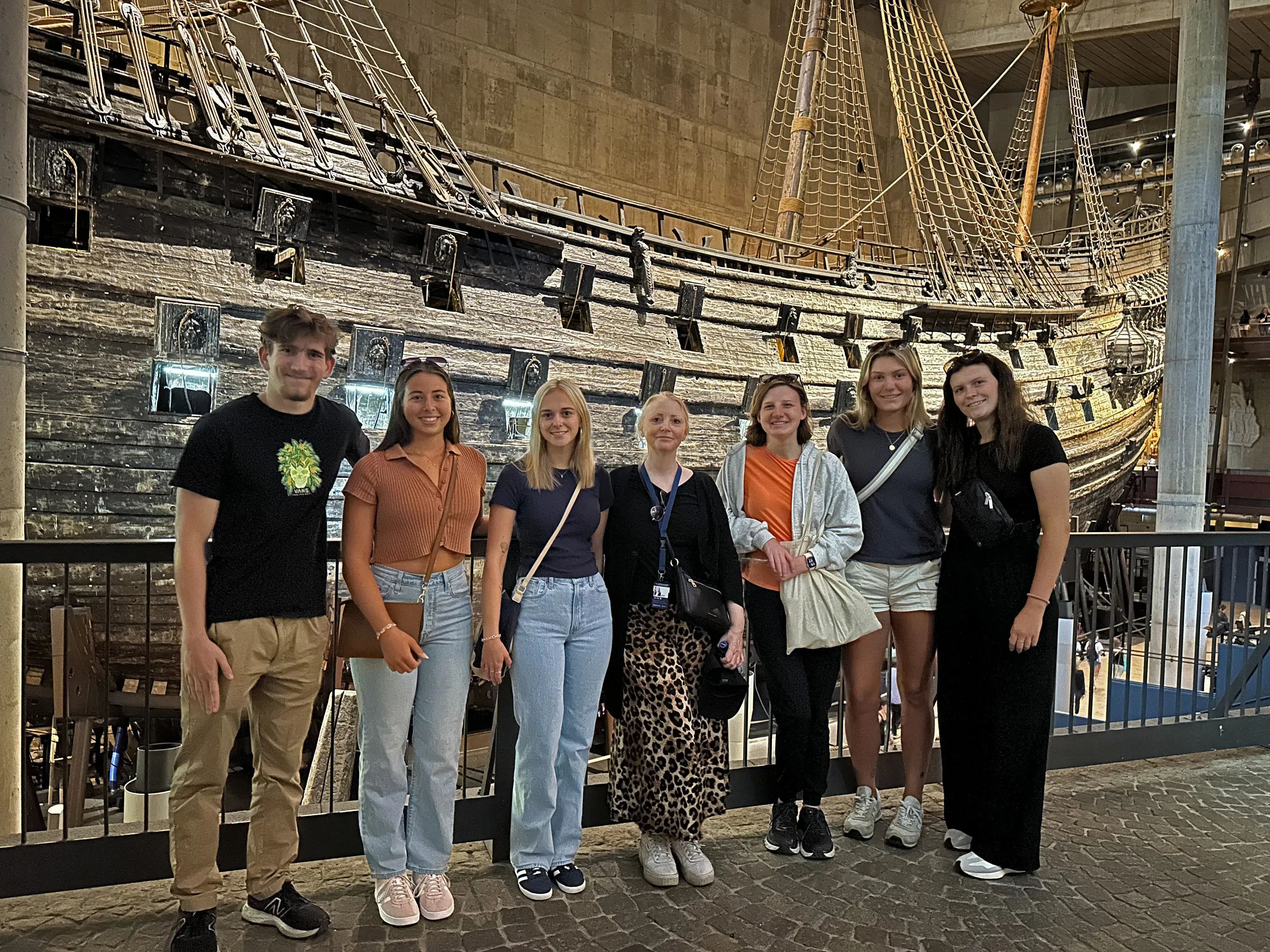
Afterward Skansen Open Air Museum to learn about traditional Swedish life and culture and participated in a Local Market Immersion: Sustainability Tour. The tour included visits to six locations (Kungsträdgården Park & Public Space, IKEA City, Wayne’s Coffee, Coop, Urban Deli, and ASKET the Store) and highlighted examples of sustainability, including waste reduction and ethical sourcing.
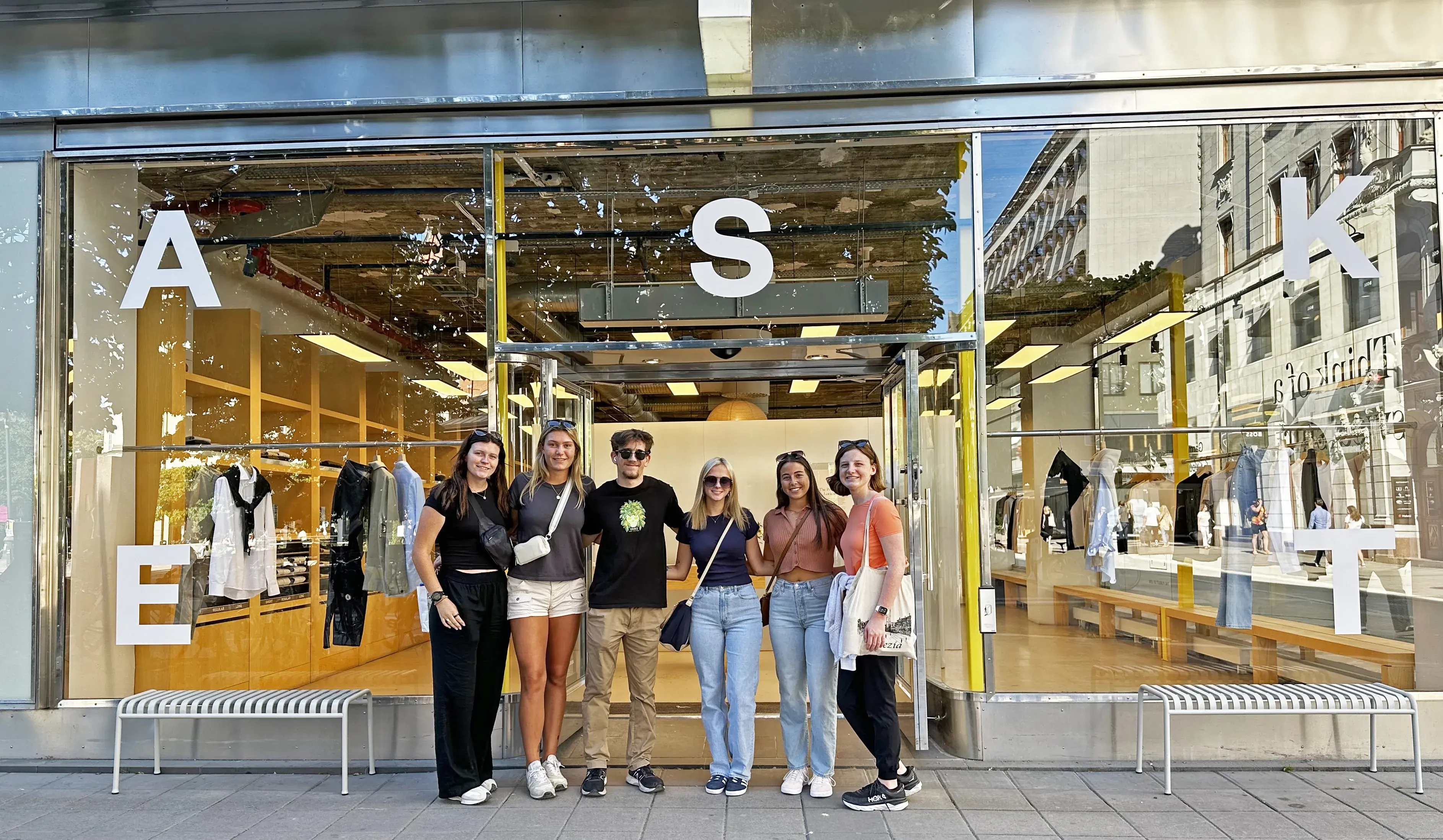
Students in front of ASKET, a sustainable clothing brand
“This hands-on exploration enhanced students’ understanding of how Stockholm and various businesses address environmental challenges. Students observed the effectiveness of Stockholm's approach to sustainability and considered innovative practices they could apply in their own communities.”
Day 4
The next day, the group learned from Tom Magnergård, a Business Development Coach at KTH Royal Institute of Technology. Established in 1827, KTH has a long-standing tradition of scientific and innovative advancements, with a strong focus on sustainable societal development.
“Tom’s inspirational presentation was an excellent way to deepen the students' interest in social entrepreneurship and sustainability.”
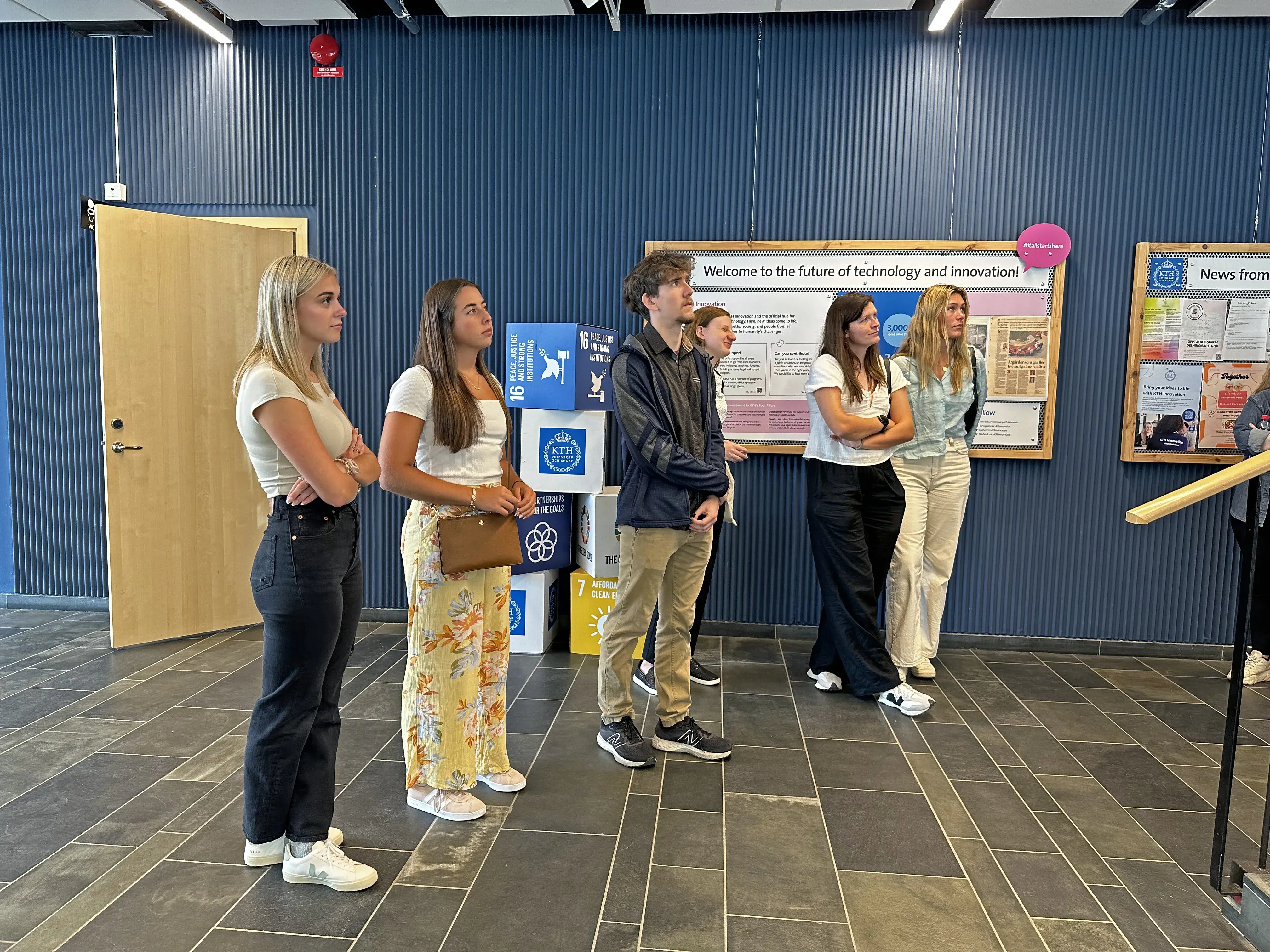
Following this, the group enjoyed a scenic train ride to Gothenburg, Sweden’s second-largest city and center for innovation and design. Gothenburg is known for its thriving social entrepreneurship scene. They visited the Gothenburg Botanical Gardens, which features around 20,000 species of plants from 130 countries. At the top of the gardens is Håberget, offering breathtaking views of Änggårdsbergen, Linnéstaden, Slottsskogen, Kungsladugård, and the harbor.
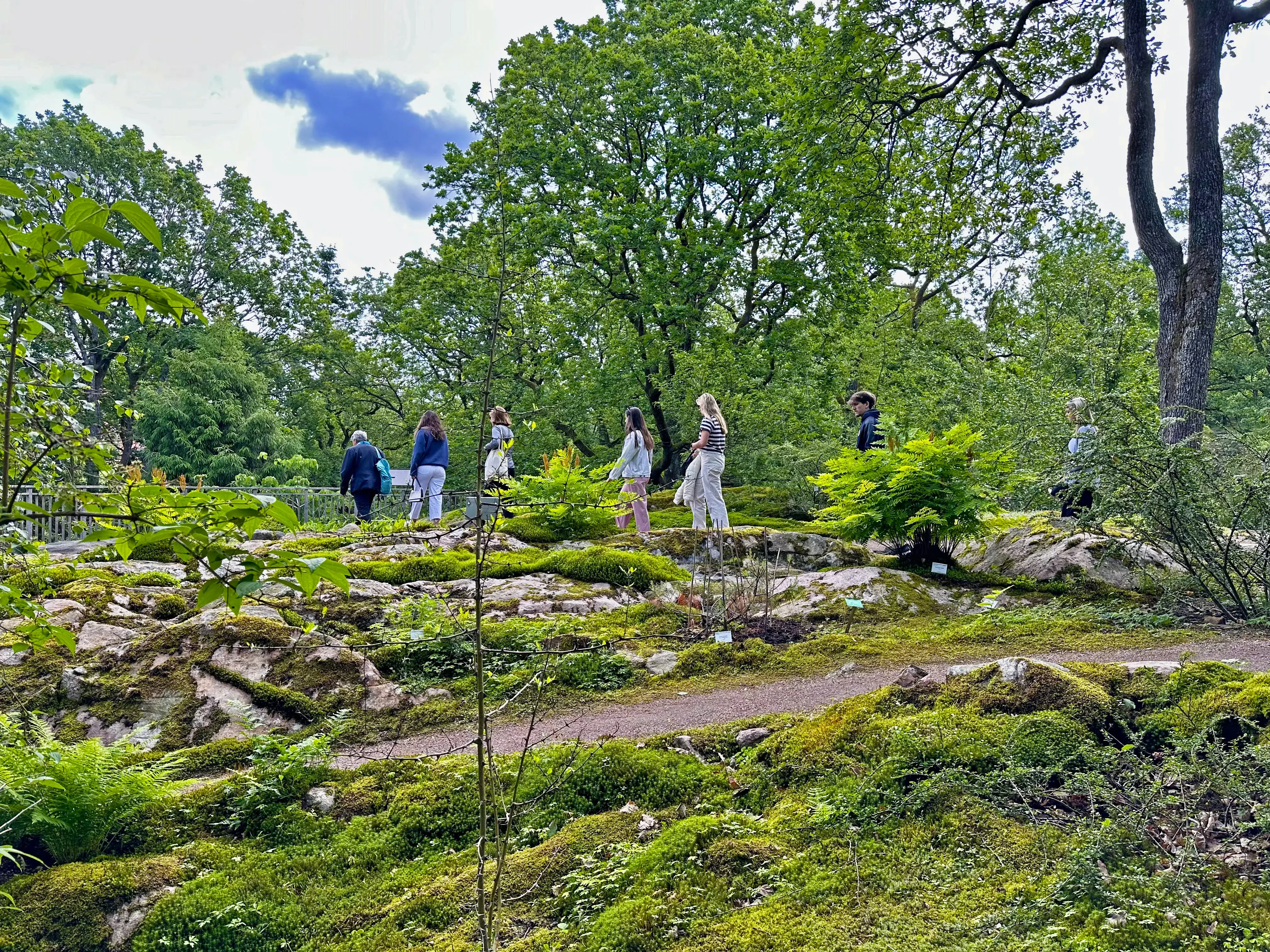
“The students enjoyed a wonderful lunch at the Botanical Gardens, with a variety of delicious, made-from-scratch dishes focusing on plant-based ingredients from the gardens.”
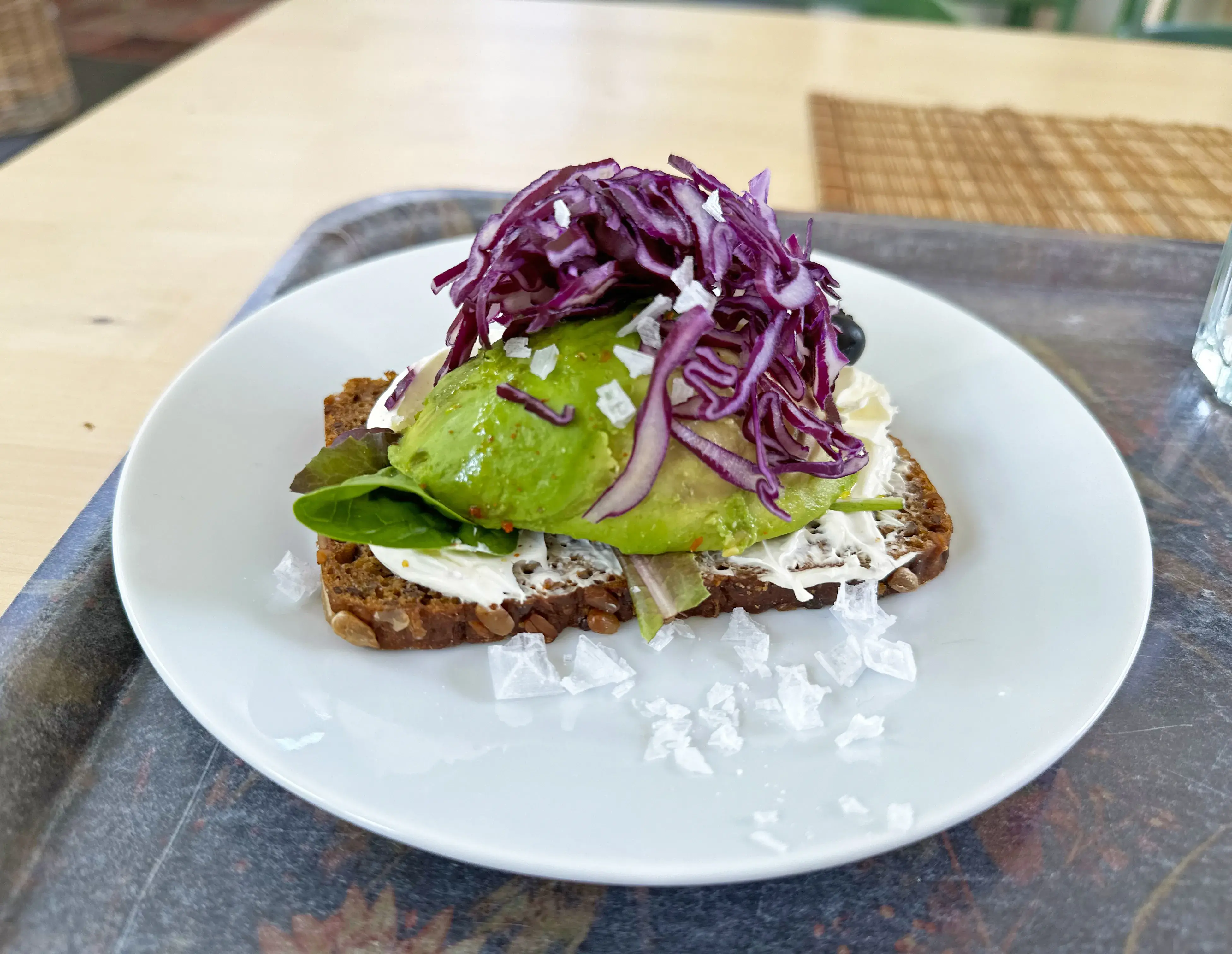
Next, the students visited the University of Gothenburg, an international institution focused on societal development and global sustainability. Cyril Stahl, an Innovation Advisor for the University, gave a lecture on social entrepreneurship.
“Learning about their impactful work was truly inspiring.”
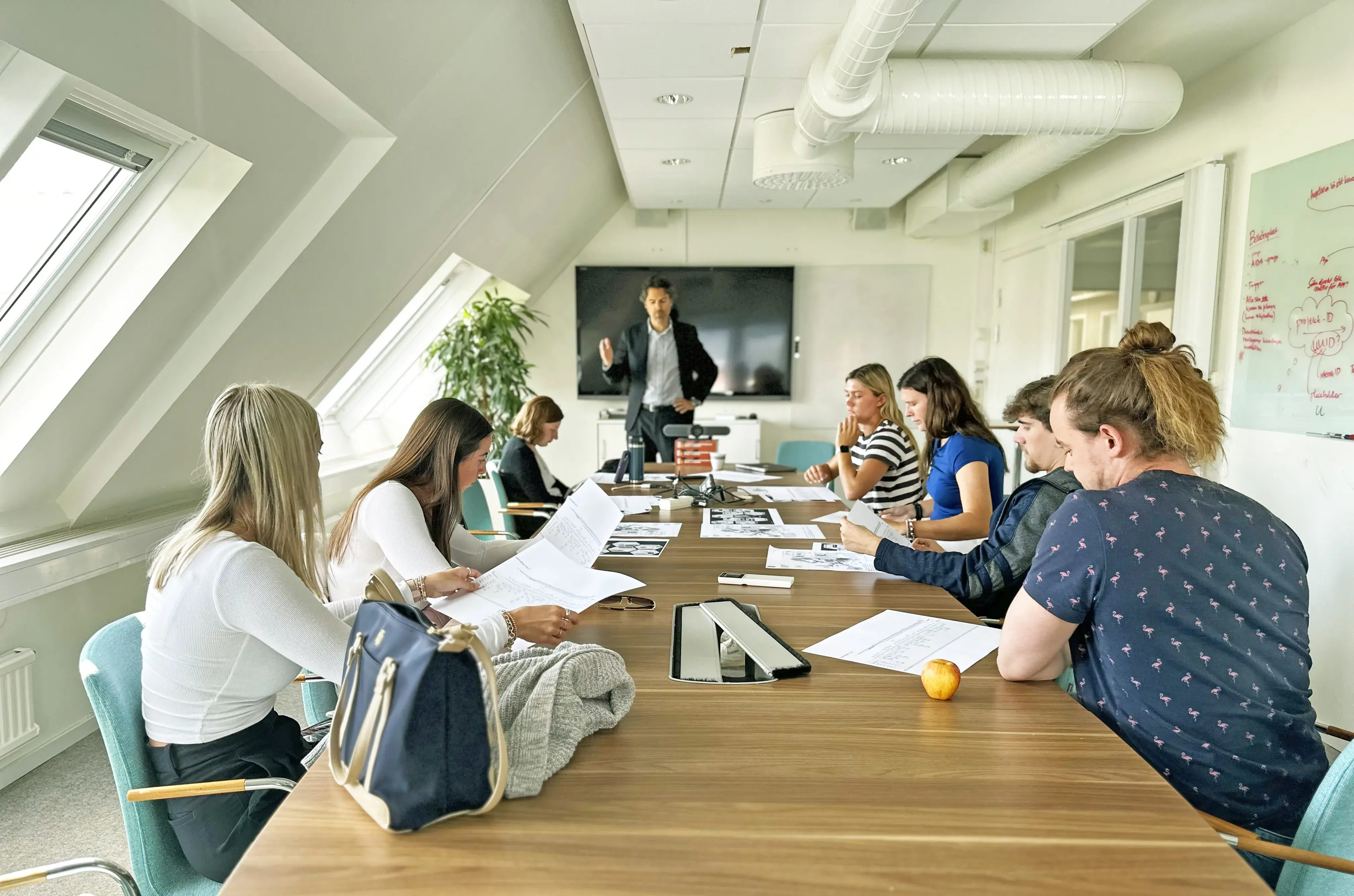
Later, the students visited the World of Volvo. Volvo is dedicated to sustainability, integrating eco-friendly practices, and prioritizing environmental stewardship in their operations.
“This unique experience center features interactive exhibitions and stunning Scandinavian-style architecture.”
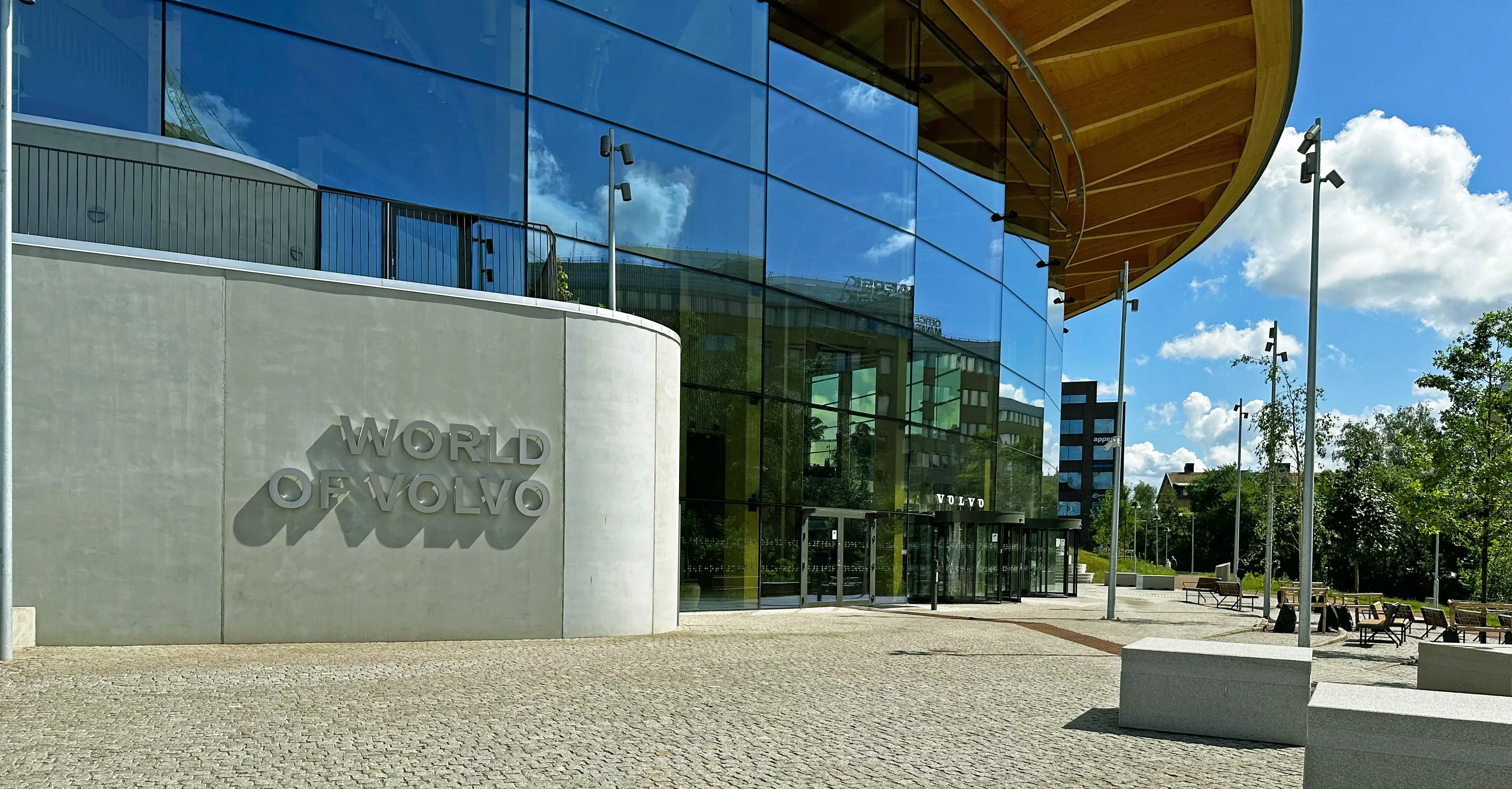
Day 5
The following day, the group took a ferry to Marstrand, a picturesque town established in the 13th century by Norwegian King Håkon Håkonsson, which became part of Sweden in 1658. By the 16th century, it had evolved into a crucial fishing port and the center of the European herring industry.
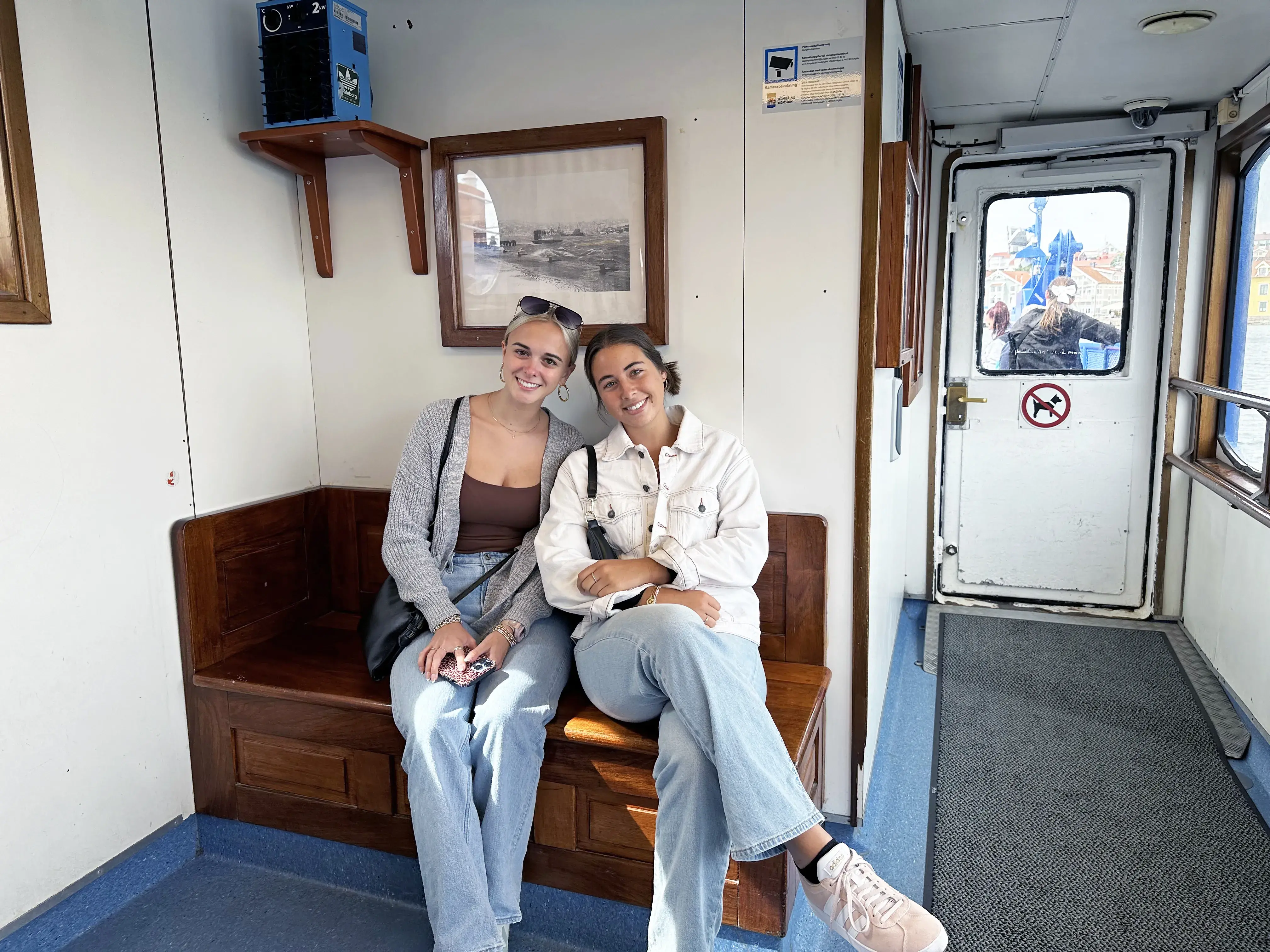
The students also ventured up to the captivating Carlsten Fortress, which has stood guard over the charming wooden town below for more than 300 years.
“The fortress's history and stunning views made the visit truly unforgettable.”
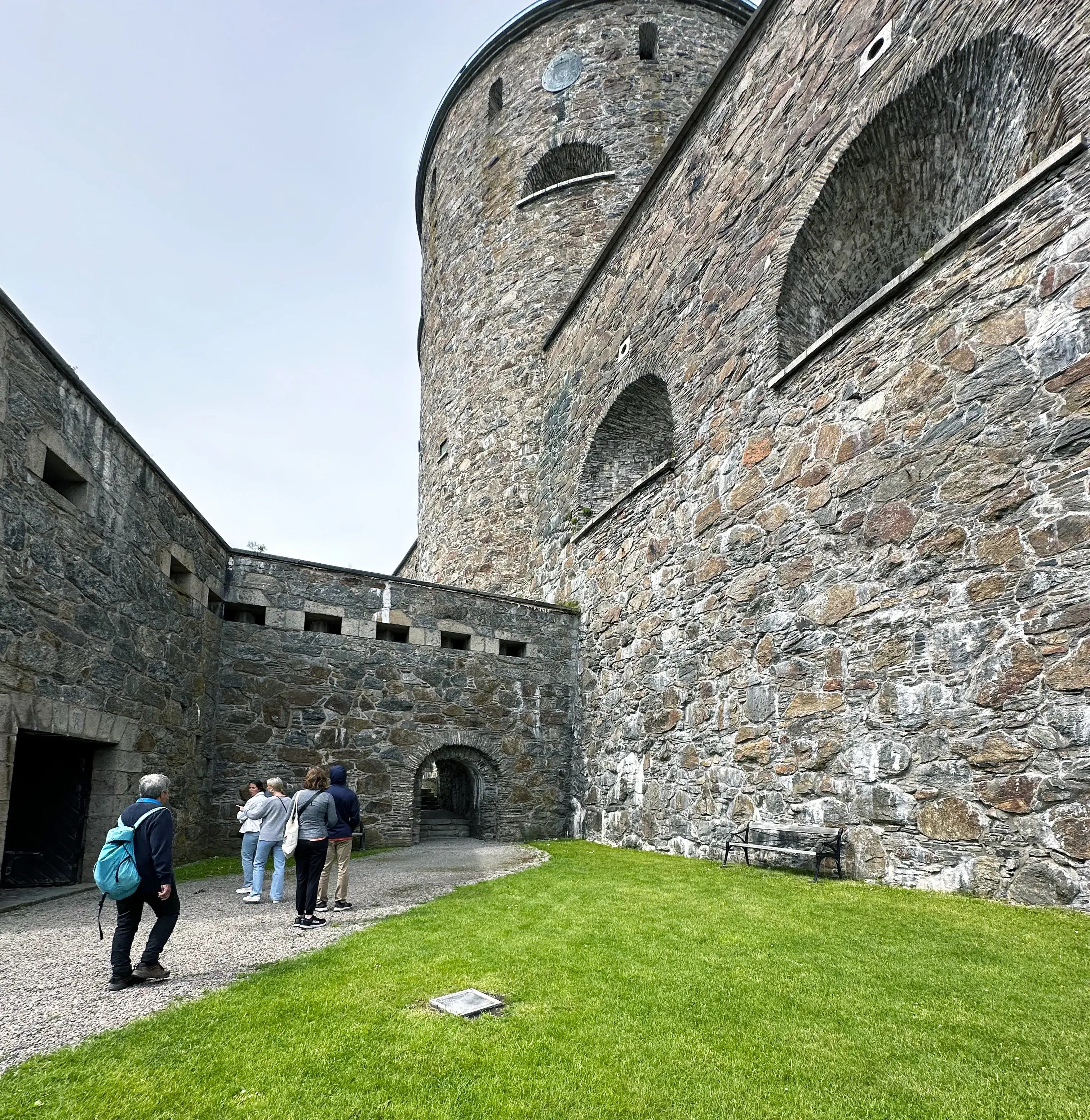
Day 6
On Sunday, the group visited the Varnhem Abbey complex, a medieval setting that includes a church, monastery ruins, and an abbey museum.
“The in-depth guided tour was fascinating.”
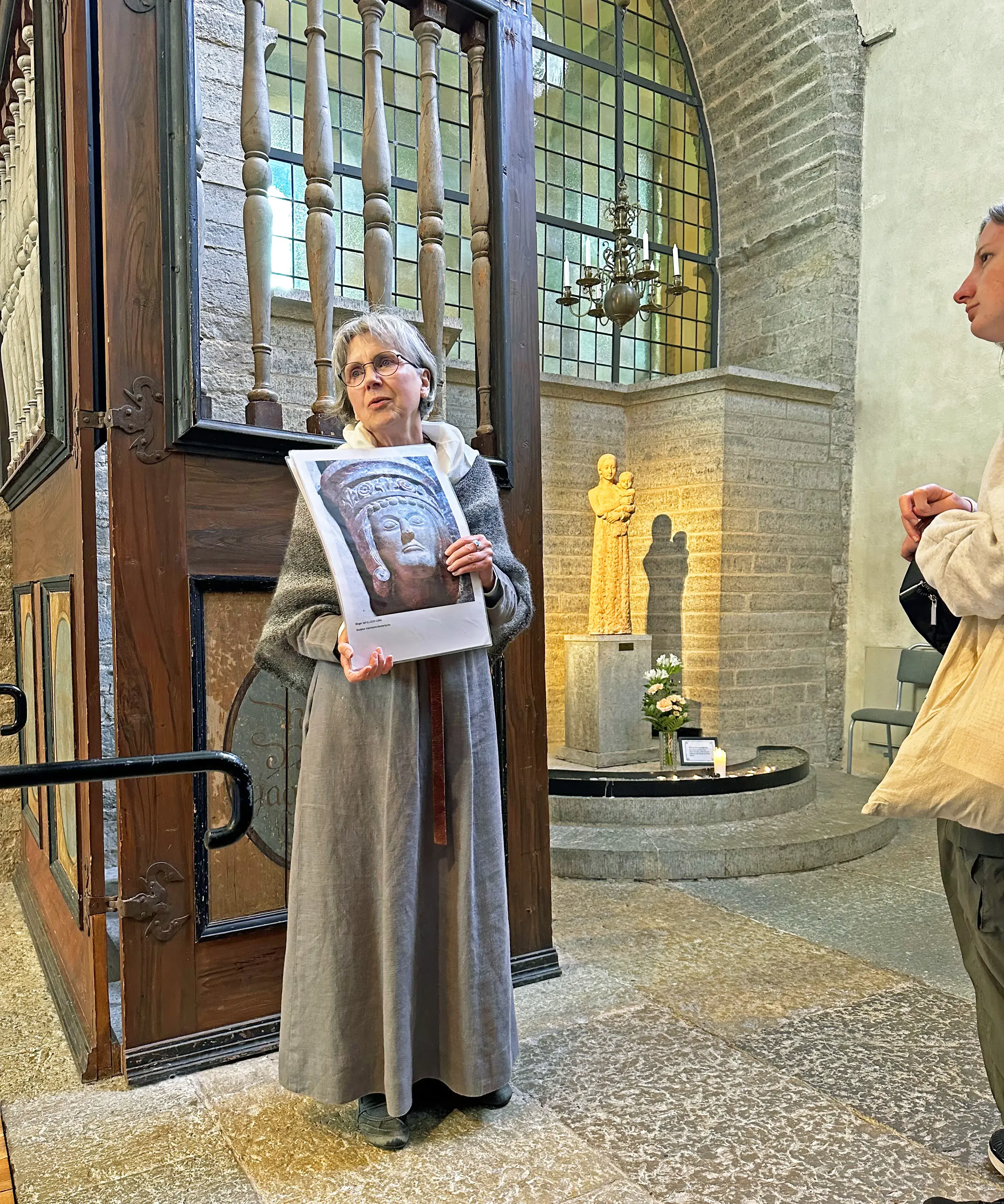
Next, they explored the magnificent Läckö Castle, discovering that Bishop Brynolf Algotsson of Skara began its construction in 1298. Following a fire in the 1470s, Bishop Brynolf Gerlachsson expanded the fortress. Today, Läckö Castle is recognized as a breathtaking national monument.
“It was an amazing day filled with rich history and beautiful sights.”
Day 7
On Monday, the students took the train back to Stockholm to spend their final day in Sweden. Their first stop was Impact Hub, a vibrant co- working space for social entrepreneurs and meet with local entrepreneurs. Upon arrival, they were invited to enjoy a traditional Swedish "fika" coffee break, indulging in delicious cinnamon buns and various sweet treats.
“Impact Hub emphasized the importance of collaboration across organizations, cultures, and generations. It was an enlightening and motivating visit. This experience and the university visits underscored the critical need for global cooperation in addressing complex issues.”
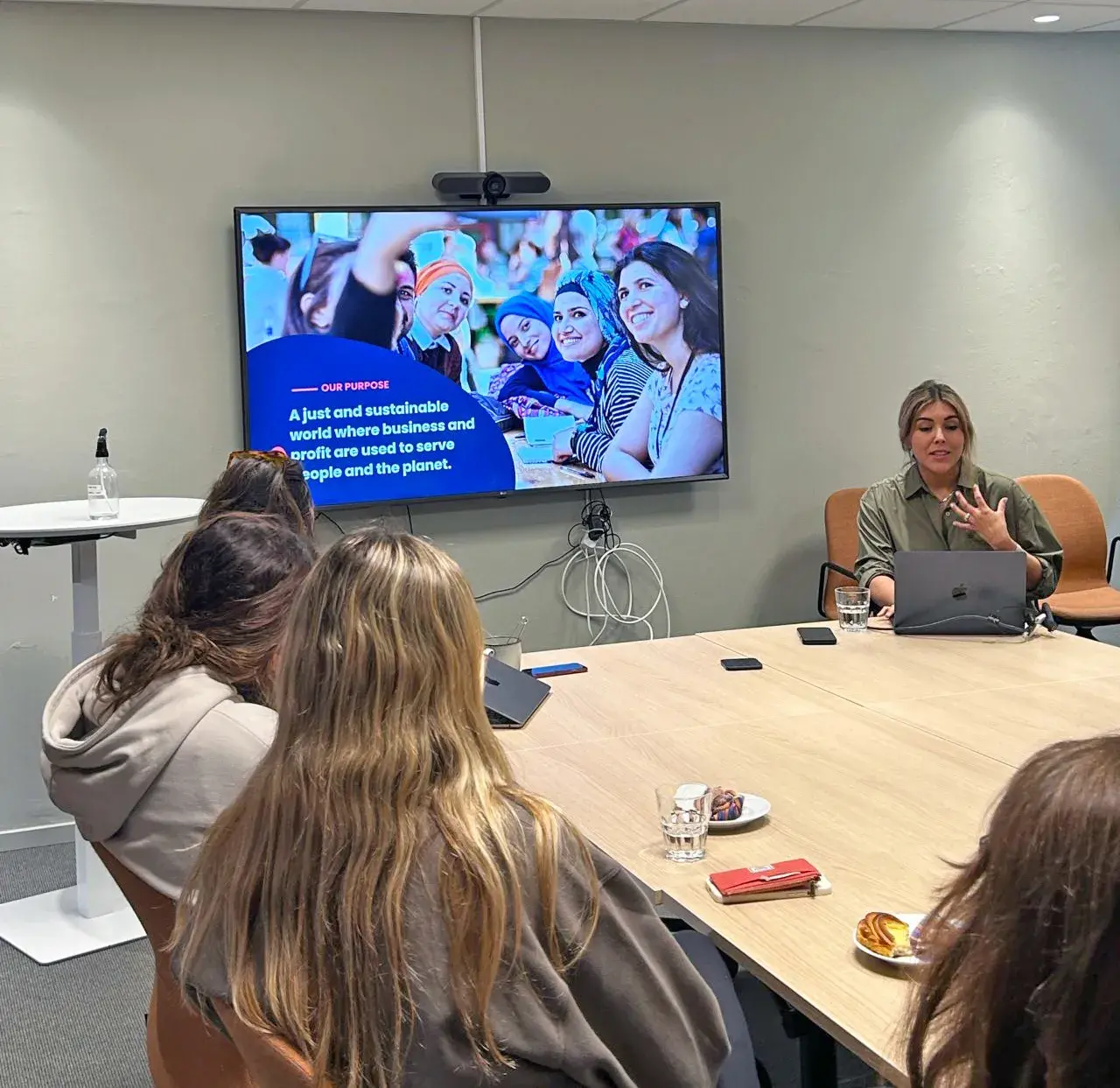
At Impact Hub Stockholm, Alexandra Sandberg, Sustainability Project Manager, and Gabriela Rodriguez, CEO, shared their perspective that the world's greatest challenges cannot be solved by one person or organization alone.
“Grateful for the bright minds from Flagler College who did a study visit at Impact Hub Stockholm today!” Impact Hub posted on LinkedIn. “🌟 It was inspiring to share Impact hub’s journey and mission as well as discussing their dreams, and enjoy some delicious fika! Here’s to making a difference together! 🌍✨”
